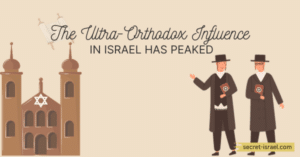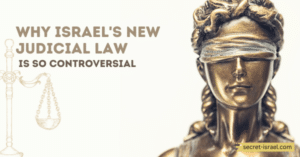Embark on an enlightening journey as we explore the boundaries of cinematic content through the 10 most controversial films ever banned in Israel. From historical dramas to avant-garde art pieces, these films have tested the limits of public sentiment and censorship, resulting in bans that have sparked global debates and discussions.
This blog post offers an in-depth look into each film’s storyline, the reasons behind their prohibition, and the reactions they stirred among audiences worldwide. Prepare for a whirlwind of facts and captivating narratives in this intriguing exploration of cinematic taboos.
1. Hitler: The Last Ten Days (1973)
A 1973 British-Italian biographical drama film that chronicles Adolf Hitler’s final days in his Berlin bunker at the end of WWII. The film offers a depiction of the Führer’s mental state, his relationship with his associates, and the chaos inside the bunker. It was banned in Israel due to its portrayal of Hitler as a human being with personal and psychological complexities, rather than a symbol of absolute evil.
Director: Ennio De Concini
Actors: Alec Guinness, Simon Ward and dolfo Celi
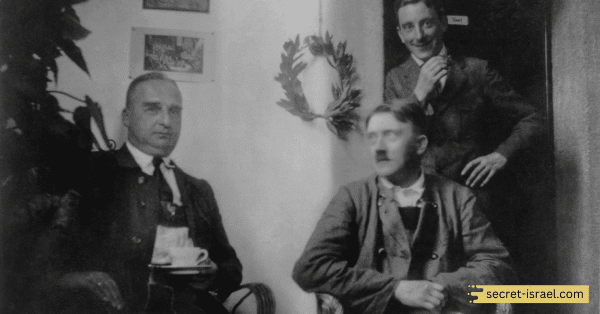
2.The Last Temptation of Christ (1988)
A 1988 American epic religious drama film that presents a fictional alternative history where Jesus Christ is subjected to the final satanic temptation. The film explores themes of faith, doubt, and spiritual conflict. It was banned in Israel due to its controversial depiction of Christ and its deviation from the biblical narrative.
Director: Martin Scorsese
Actors: Willem Dafoe, Harvey Keitel, and Barbara Hershey

3.Jenin, Jenin (2002)
A 2002 Palestinian documentary film that covers the Battle of Jenin, a part of the Second Intifada in April 2002. The film presents interviews with Jenin residents after the city experienced intense combat. It was banned in Israel due to its perceived one-sided portrayal of the events, which was seen as potentially inciting hatred and violence.
Director: Mohammed Bakri
Actors: Mohammed Bakri, Zakaria Zubeidi, and Yusuf Abu Warda
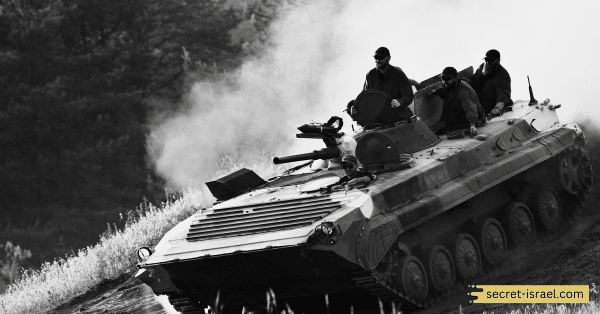
4.China Gate (1957)
A 1957 American war film set during the Korean War. The film follows a group of mercenaries who are hired to destroy an ammunition dump which is situated deep in enemy territory. The film was banned in Israel due to its controversial racial relationships and stereotypes.
Despite the ban, the film remains a significant artifact of mid-20th century American cinematography, particularly for its bold exploration of themes rarely touched upon during the era, such as interracial romance and the harsh realities of war.
Director: Samuel Fuller
Actors: Gene Barry, Angie Dickinson, and Nat King Cole.
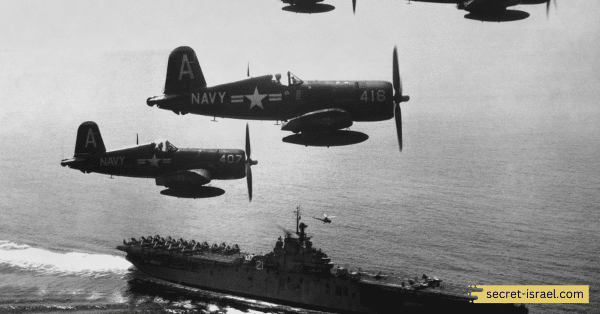
5.Goldfinger (1965)
A 1965 British spy film, the third installment in the James Bond series produced by Eon Productions. It features Sean Connery as the fictional MI6 agent, James Bond. The film’s storyline revolves around Bond’s mission to prevent the eponymous villain Goldfinger, played by Gert Fröbe, from wreaking financial havoc on the global economy with a audacious scheme to contaminate the United States Bullion Depository at Fort Knox.
Despite being critically acclaimed and commercially successful, the film ran into trouble in Israel due to the casting of Gert Fröbe, who had been a member of the Nazi Party during World War II. However, the ban was lifted after a Jewish family publicly thanked Fröbe for protecting them from persecution during the war.
Director: Guy Hamilton
Actors: Sean Connery, Gert Fröbe, and Honor Blackman
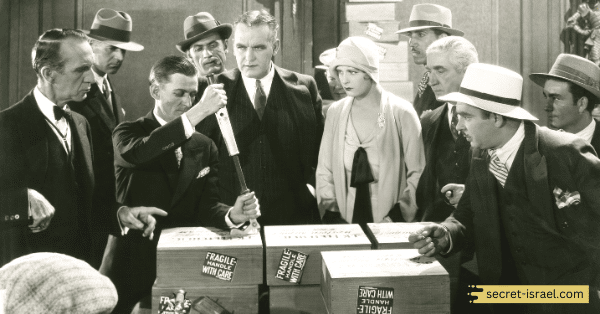
6.The Girl in the Kremlin (1957)
“The Girl in the Kremlin” is a 1957 American Cold War-era drama film. The plot revolves around the seemingly executed Joseph Stalin, who is actually alive and hidden in a secret bunker. His twin brother, who is in on the conspiracy, seeks the help of a group of Westerners to undertake plastic surgery and assume a new identity. This sequence of events builds up to a thrilling climax.
This film explores themes of political deception, identity, and international intrigue. However, it was banned in Israel primarily due to the portrayal of Stalin, a controversial figure, and the sensitive political themes highlighted, which were considered potentially incendiary during the high-tension period of the Cold War.
Director: Russell Birdwell
Actors: Zsa Zsa Gabor, Lex Barker, and Robert Harron
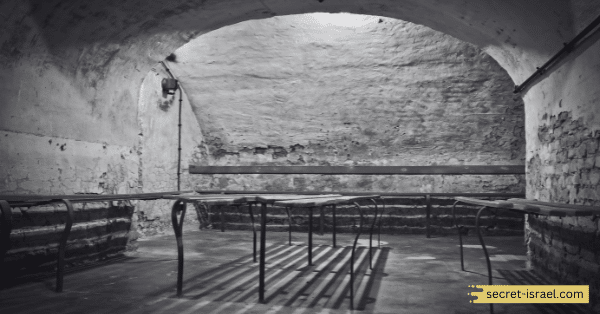
7.Salome (1953)
A 1953 American biblical drama film, ‘Salome’ is a retelling of the famous biblical story of the same name, depicting the notorious dance of the seven veils and the execution of John the Baptist. The film was banned in Israel due to its sensual portrayal of the biblical figure Salome, which was seen as distasteful and disrespectful to religious sensibilities.
Despite the ban, ‘Salome’ is remembered for its vivid color cinematography, lavish set designs, and the striking performance by Rita Hayworth in the titular role. Additionally, it stands as an example of the Hollywood biblical epic genre, noted for its spectacle and grandeur.
Director: William Dieterle
Actors: Rita Hayworth, Stewart Granger, and Charles Laughton
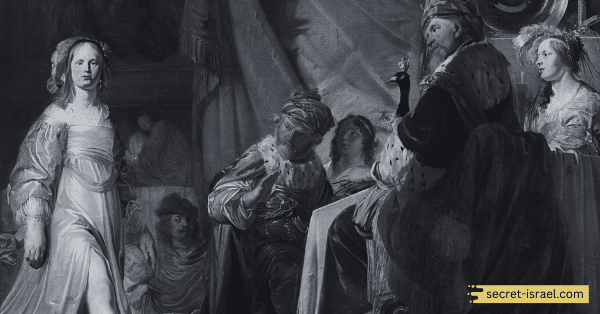
8.Mondo Cane (1962)
“Mondo Cane” is a 1962 Italian shockumentary film, also known as “A Dog’s World”. Often credited with establishing the “Mondo” genre—a subgenre of documentaries presenting sensational topics, often involving death and sex. The film showcases a series of stark and often shocking contrasts between Western civilization and so-called primitive or non-Western cultures.
“Mondo Cane” was banned in Israel due to its graphic content and the controversial nature of the topics presented, which include scenes of animal cruelty, death rituals, and other culturally sensitive subjects. Despite the controversy, the film is noteworthy for its cultural influence and its role in creating a new genre of film. The film’s theme song, “More”, also gained considerable recognition, becoming a hit and being nominated for an Academy Award.
Director: Paolo Cavara, Franco Prosperi, and Gualtiero Jacopetti
Actors: Giuliano Gemma, John Kitzmiller, and Frank Wolff

9.A Clockwork Orange (1971)
Employs disturbing, violent images to comment on psychiatry, juvenile delinquency, youth gangs, and other social, political, and economic subjects in a dystopian, near-future Britain.
The narrative revolves around Alex DeLarge, an antisocial delinquent whose interests include classical music (especially Beethoven), committing heinous crimes, and a mysterious mind-altering technique known as the ‘Ludovico Technique’. The film delves into themes of morality, free will, and the dichotomy of good and evil, leaving audiences with thought-provoking questions.
Despite being highly praised for its innovative cinematography, powerful performances, and exploration of complex themes, “A Clockwork Orange” was banned in Israel due to its high-impact violent content, which was deemed potentially harmful and socially irresponsible.
Director: Stanley Kubrick
Actors: Malcolm McDowell, Patrick Magee, and Adrienne Corri

10.The Texas Chain Saw Massacre (1974)
It is often considered a pioneering work in the “slasher” genre because of its graphic depiction of violence and terror. The plot focuses on a group of friends who become victims of a family of cannibals on a desolate Texas road. The most notorious of the family, Leatherface, a masked killer who wields a chainsaw, became a horror icon following the film’s release.
The film was a commercial success, despite its initial controversy due to the violent content. However, it was banned in several countries, including Israel, due to its extreme violence and the terror it instilled in audiences. Even though it caused discomfort amongst viewers and censorship boards, the film has since been lauded for its realistic aesthetic and is considered a classic of the horror genre.
Director: Tobe Hooper
Actors: Marilyn Burns, Edwin Neal, and Allen Danziger

In conclusion
Israel’s film censorship history reveals a critical sensitivity towards a range of themes, from depictions of graphic violence to politically charged narratives. The banned films span various genres and decades, suggesting that the nation’s censors have been consistent in their motive to protect audiences from potentially offensive content.
The list of banned films in Israel serves as an intriguing record of the country’s social and cultural boundaries as reflected in its cinema. Yet, it also raises questions about the role of censorship in shaping public discourse and the ongoing tension between artistic expression and societal norms.



